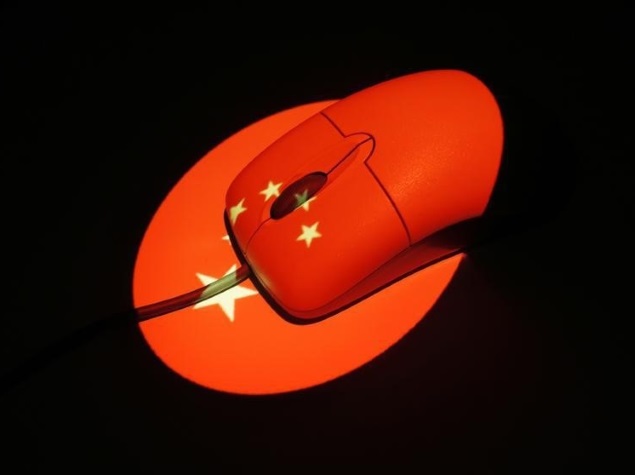- Home
- Internet
- Internet News
- China Court Rulings Stress Control of Internet Rests With the Party
China Court Rulings Stress Control of Internet Rests With the Party

The new regulations reflect the ruling Communist Party's desire for all concerted efforts to influence popular opinion, both online and offline, to remain firmly in its own hands.
The Supreme People's Court ruled on Thursday that collective and paid efforts to publish positive or negative information online will be subject to penalties, said the official China Daily newspaper.
Paid efforts to delete content from the Internet will also be illegal, according to the new regulations.
Since Xi Jinping became president in early 2013, China's Internet has undergone an even greater shift towards state control and government-imposed censorship.
China was ranked as the joint-second worst country after Iran for Internet freedom last year, according to U.S.-based rights group Freedom House's Freedom on the Net report.
China's government has long opposed mass demonstrations, and sees non-Party attempts to organise and influence social opinion as potentially destabilising.
Censors are more likely to delete online comments about protests or collective action, even if supportive of the state, than posts on sensitive topics such as senior leaders, according to studies at Harvard University.
Last year, China criminalised the spreading of rumours online and began official campaigns to clamp down on 'obscenity' and 'pornography', loosely defined terms that critics say can be wielded as a blunt tool to eliminate material seen as damaging to the Communist Party.
(Also see: China employing two million people as "web police" to monitor Internet)
"Anyone who hires, organises or asks others to publish or forward damaging online information in violation of rights should be penalized," China Daily cited the Supreme Court guidelines as saying.
"The underground industry that takes money to eliminate online posts is illegal, and it provides profit to people or companies with bad motives," added China Daily, citing the court's spokesman.
Concerns about China's tightening control of the Internet again flared up around pro-democracy demonstrations in Hong Kong, which have swept up tens of thousands of protesters and seen the use of tear gas, violent clashes and mass disruptions to business and traffic over the past 11 days.
Users of the Tencent Holdings Ltd's hugely popular WeChat mobile messaging app, Weibo Corp microblog and the Baidu Inc search engine noted posts, pictures and search terms were either forbidden or being blocked in the mainland.
© Thomson Reuters 2014
Catch the latest from the Consumer Electronics Show on Gadgets 360, at our CES 2026 hub.
Related Stories
- Samsung Galaxy Unpacked 2025
- ChatGPT
- Redmi Note 14 Pro+
- iPhone 16
- Apple Vision Pro
- Oneplus 12
- OnePlus Nord CE 3 Lite 5G
- iPhone 13
- Xiaomi 14 Pro
- Oppo Find N3
- Tecno Spark Go (2023)
- Realme V30
- Best Phones Under 25000
- Samsung Galaxy S24 Series
- Cryptocurrency
- iQoo 12
- Samsung Galaxy S24 Ultra
- Giottus
- Samsung Galaxy Z Flip 5
- Apple 'Scary Fast'
- Housefull 5
- GoPro Hero 12 Black Review
- Invincible Season 2
- JioGlass
- HD Ready TV
- Laptop Under 50000
- Smartwatch Under 10000
- Latest Mobile Phones
- Compare Phones
- Tecno Spark Go 3
- iQOO Z11 Turbo
- OPPO A6c
- Samsung Galaxy A07 5G
- Vivo Y500i
- OnePlus Turbo 6V
- OnePlus Turbo 6
- Itel Zeno 20 Max
- Lenovo Yoga Slim 7x (2025)
- Lenovo Yoga Slim 7a
- Lenovo Idea Tab Plus
- Realme Pad 3
- Garmin Quatix 8 Pro
- NoiseFit Pro 6R
- Haier H5E Series
- Acerpure Nitro Z Series 100-inch QLED TV
- Asus ROG Ally
- Nintendo Switch Lite
- Haier 1.6 Ton 5 Star Inverter Split AC (HSU19G-MZAID5BN-INV)
- Haier 1.6 Ton 5 Star Inverter Split AC (HSU19G-MZAIM5BN-INV)






![[Sponsored] Haier C90 OLED TV | Dolby Vision IQ, 144Hz OLED and Google TV in Action](https://www.gadgets360.com/static/mobile/images/spacer.png)









